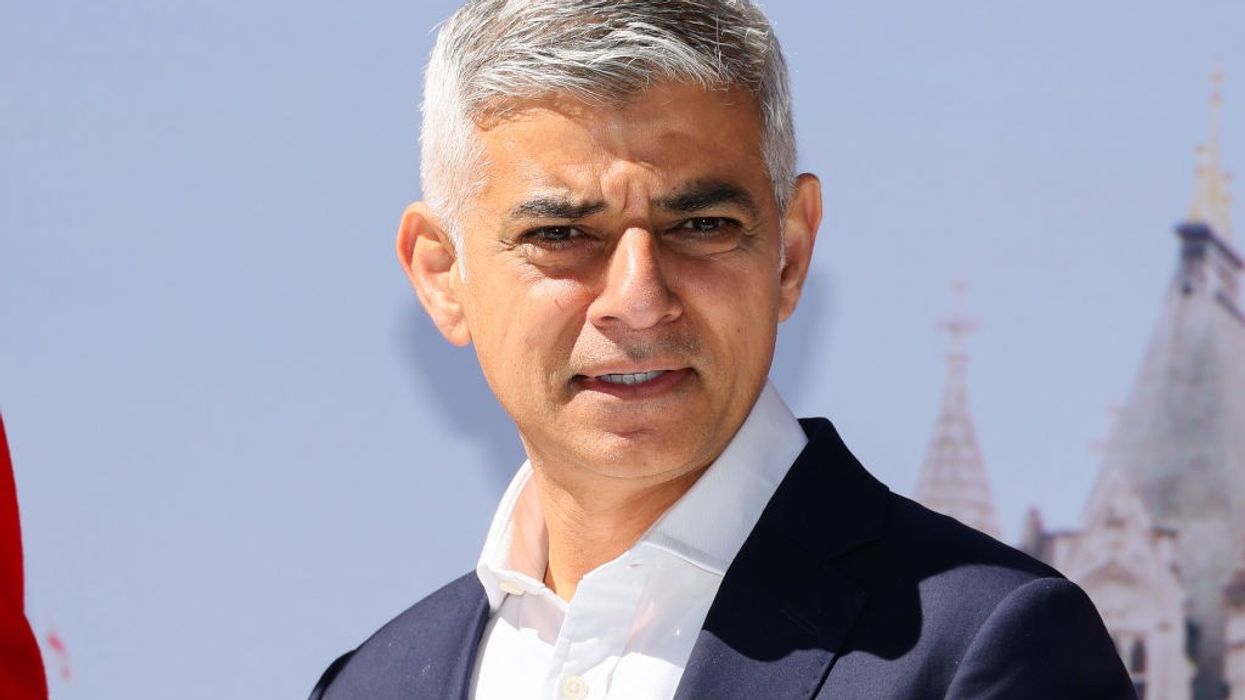LONDON mayor, Sir Sadiq Khan, who has matched Margaret Thatcher and Tony Blair in winning three elections in a row, is the most influential Asian in the country, according to the annual GG2 Power List. Khan is followed in second place by Shabana Mahmood, the Lord Chancellor and secretary of state for justice.
Now in its 15th year, the GG2 Power List was launched at the 26th annual GG2 Leadership and Diversity Awards in London on Tuesday (4) evening, where deputy prime minister, Angela Rayner, was the chief guest.
The gala event celebrates top ethnic minority talent in the UK and is hosted by the Asian Media Group, publishers of Eastern Eye and Garavi Gujarat news weeklies. More than 600 people attended the annual event in central London.
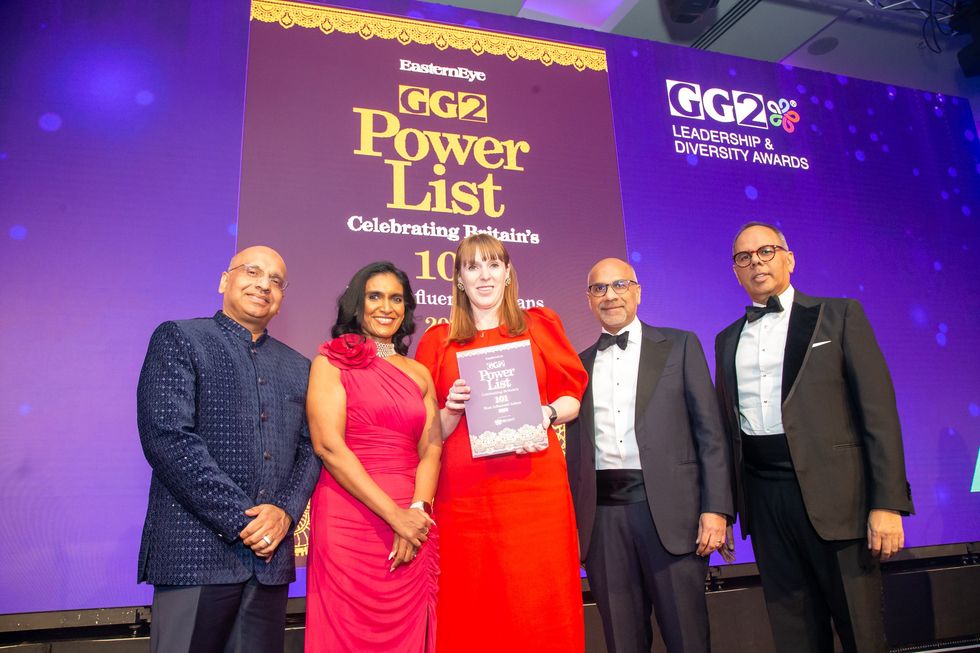
Rayner said, "The fantastic achievements of Asian agents in this country are visible everywhere, across every field—from politics and business to the arts, public sector, sports, and academia. This community has contributed immensely to our nation. In fact, Asian influence saw London have a brat summer last year. And no, I'm not just referring to musical talents like Charlie XCX. I'm talking about my good friend, Sir Sadiq Khan, the first British Asian and first Muslim Mayor of London, who won a historic third term last year. I'm proud to announce that he's topped this year's GG2 Power List too.
"Charlie XCX and Sir Sadiq have been an unlikely pairing, both succeeding in their ambition to transform London. On a more serious note, we also remember the late founders of the Asian Media Group, Ramniklal Solanki and his wife Parvatiben, who did so much to combat prejudice and discrimination through their platform. From launching a small publication in a terraced house in Wembley to today's established Asian Media Group, their incredible efforts have formed the foundations of the community, often against considerable odds. I am honoured to pay tribute to their remarkable achievements today."
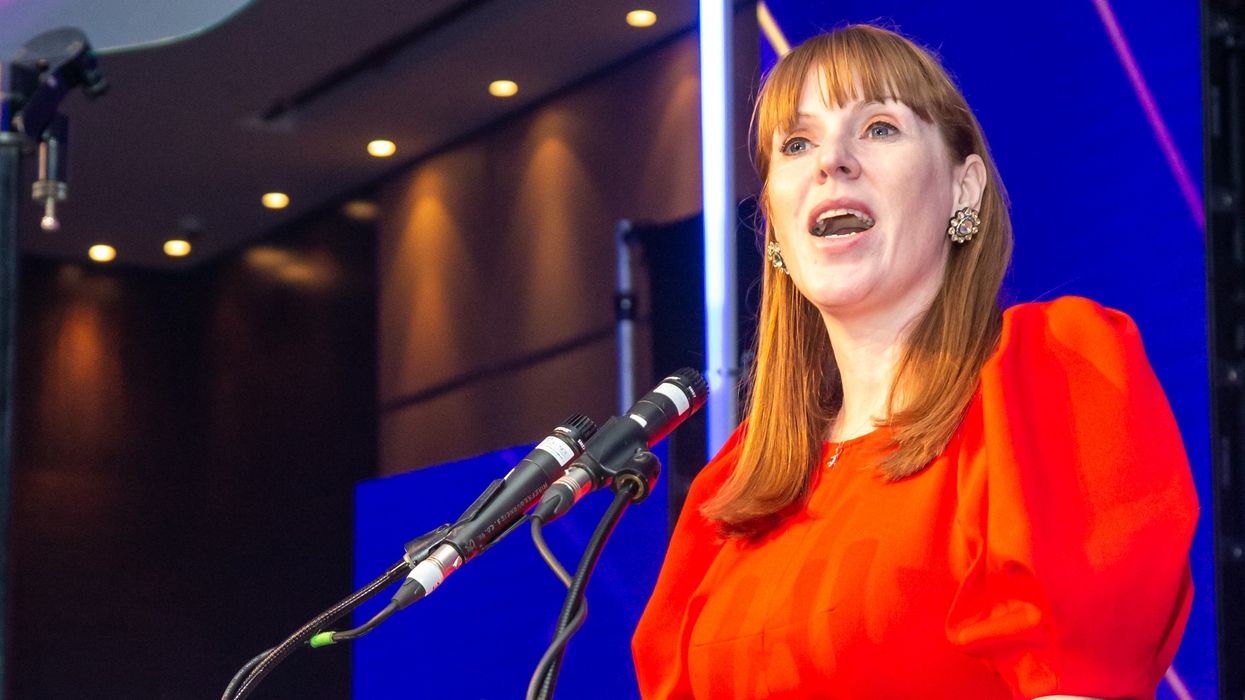
Welcoming the gathering, Kalpesh Solanki, Group Managing Editor of Asian Media Group, said, "For 26 years, these awards have celebrated those who have not only broken barriers but have redefined what leadership looks like in our diverse society.In a world that continues to grapple with division, these awards remind us of a simple truth: our differences are not obstacles to overcome, but assets to embrace.
"The tapestry of experiences, perspectives, and cultural traditions represented in this room tonight is not just inspiring—it is the very foundation upon which our shared future must be built. Tonight's celebration takes on additional significance as we find ourselves at a crucial inflection point.
"Recent statements from the highest office in America suggesting that diversity initiatives are unnecessary or counterproductive demand our thoughtful response. When powerful voices question the value of inclusion, we must answer not with anger, but with evidence and renewed commitment."
He added, "The case for diversity is not ideological—it is practical, proven, and essential for our collective prosperity."
The GG2 Power List of the “101 most influential Asians”, with 33 women (33 per cent) and 24 new entries (24 per cent), provides a sort of snapshot of contemporary British society. Compared with last year, there has been quite a churn brought about by Labour’s general election victory in July 2024.

At a time when migration has become a subject of toxic debate throughout Europe, leading to the rise of far-right parties and politicians, “multicultural Britain continues to shine a beacon across the world,” said Shailesh Solanki, executive editor of Eastern Eye.
Those who came to this country as immigrants in the 1950s and 1960s or as refugees in the 1970s (for example, from Uganda) – and increasingly their British-born sons and daughters – are excelling in everything from politics to business, the corporate world, medicine, science, academia, the arts and sports.
Although racism has not gone away, “Asians have been able to flourish because they live in a very tolerant and welcoming country,” Solanki added.
That is the one principal find ings of the GG2 Power List. Starting with a long list of several hundred people, an independent judging panel whittled down the number to 101. Candidates were expected to have impressed in their own field. But what was also required was some indication they had inspired others or made a positive contribution to society. Being rich was not enough by itself. To be sure, wealth buys influence, but very few people have made the transition from Eastern Eye’s Asian Rich List to the GG2 Power List.
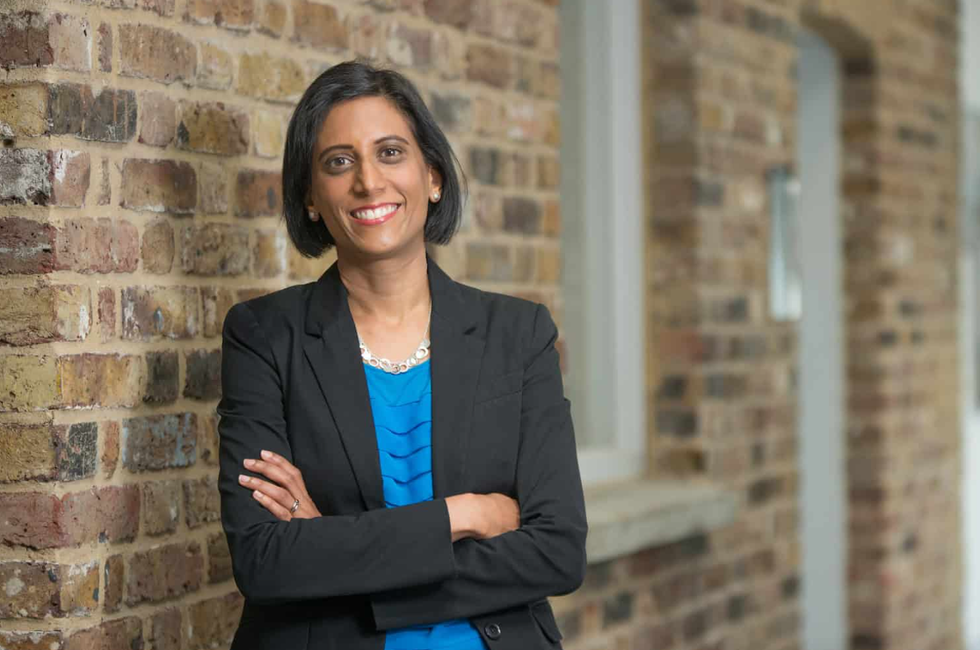
The GG2 Power List indicates British Asians are not held back by their modest origins, as Mahmood indicated when taking her oath of office. “I must say what an honour it is to take my own oath as Lord Chancellor,” she said.
“I hold this office in the very highest regard,” she went on. “I do so not just as a former barrister, but as the child of immigrants. My parents weren’t steeped in Magna Carta, Habeas Corpus and the Bill of Rights – as I would one day be.”
She added: “There once was a little girl in Small Heath, one of the poorest areas of Birmingham who worked behind the till in her parents’ corner shop.
“I’ve carried the weight of many identities in this career. It is a privilege, but also a burden. So, at the very least, I hope my appointment shows the next little girl in Small Heath, or wherever she may be that, in this country, even the oldest offices in
the land are within reach of us all.”
Three places below Mahmood and ranked fifth is Rishi Sunak, who was obviously number one last year when he was prime minister, a historic moment in Britain’s history. He was full of admiration when he launched last year’s GG2 Power List.
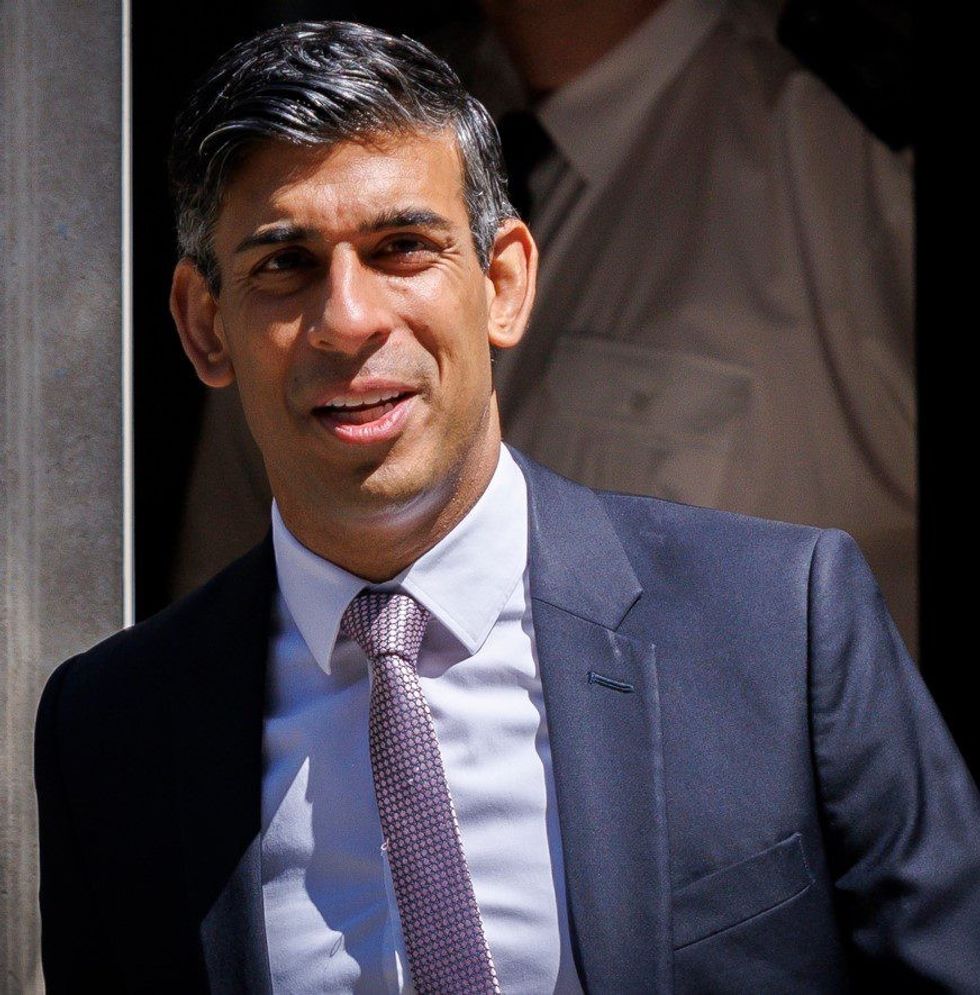
Compared with the other surviving British former prime ministers – Sir John Major (82), Sir Tony Blair (71), Gordon Brown (73), Lord David Cameron (58), Lady Theresa May (68), Boris Johnson (60) and Liz Truss (49) – Sunak has youth on his side. He is still
only 44, with much of his working life ahead of him.
The Indian prime minister, Narendra Modi, happily received Sunak, his wife, Akshata Murty, their daughters, Krishna and Anoushka, and his mother-in-law, Sudha Murty, in New Delhi last month. This would suggest the former prime minister will remain an important figure in the “living bridge” between India and Britain and especially the 2.5 million people of Indian origin in the UK.
Intriguingly, Mahmood and Sunak have one thing in common – they both went to Lincoln College, Oxford, and at about the same time. Mahmood was born in Birmingham on September 17, 1980 and graduated with a 2.1 in law in 2002. Sunak, born in Southampton on May 12, 1980, read PPE (philosophy, politics and economics) and graduated in 2001 with a First.
Mahmood was considered for the top place on the GG2 Power List. But, ultimately Sir Sadiq, who was knighted in the New Year’s Honour List, prevailed because – unlike Mahmood – he cannot be sacked by the prime minister. Having his own mandate makes him one of the most influential politicians in Europe. He was ranked number one in the GG2 Power Lists of 2017 and 2018 as well.
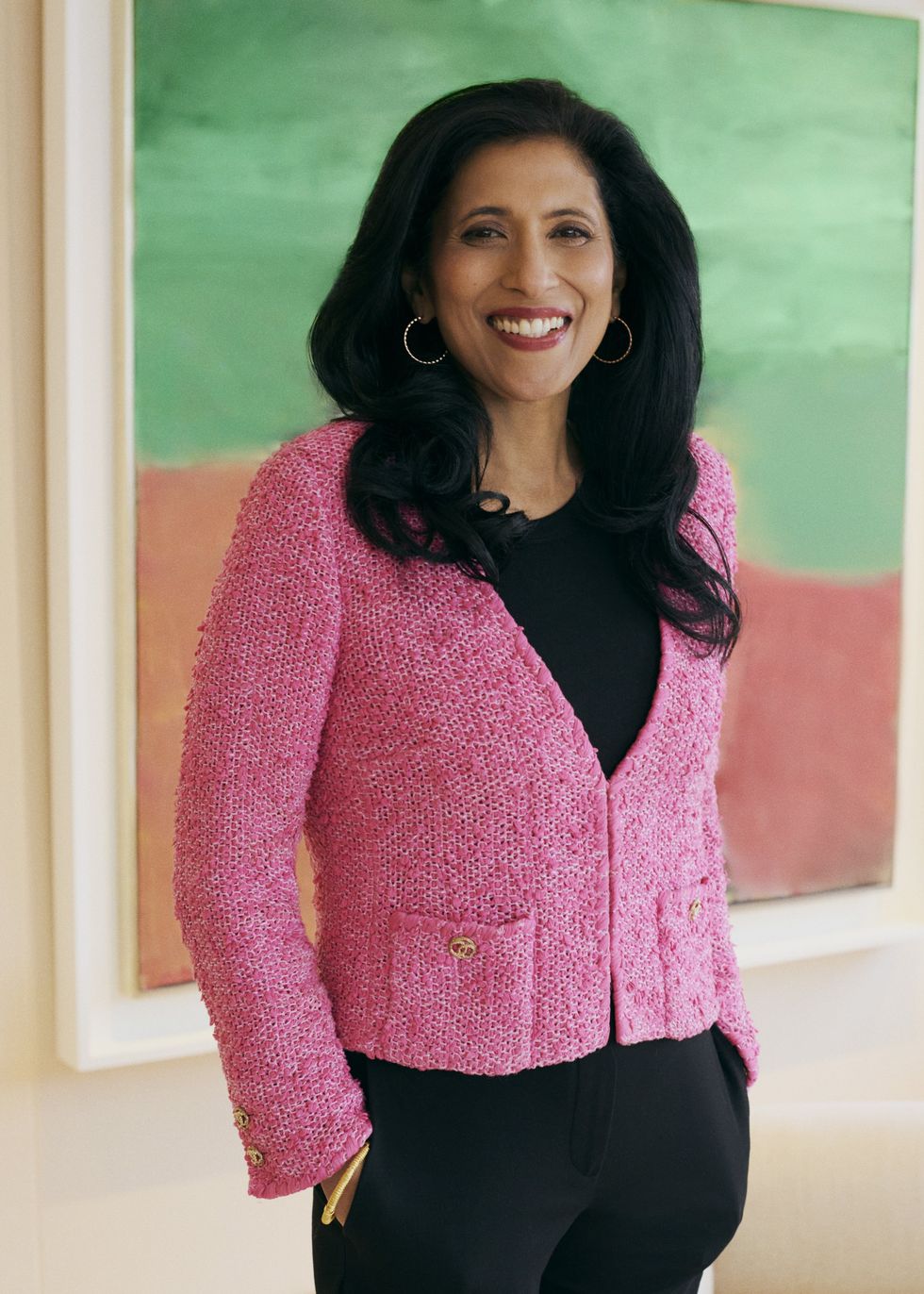
Under Starmer, Asians have not been given the great offices of state, as happened under both Johnson and Sunak. Mahmood and the culture secretary, Lisa Nandy (ranked 11), the daughter of a Bengali father and an English mother, are the only ones in the cabinet.
But Starmer scores in another way. If there are concentric circles of power at 10, Downing Street, with the prime minister at the centre, Asians occupy key positions in the inner ring. They choose not to have public profiles, but Nin Pandit, ranked four on the
list, is principal private secretary to the prime minister. She was once described by Dominic Cummings as one of “the brilliant women around the table” who would have done the job of prime minister “10 times better” than Johnson.
Pandit is a new entry, as is Vidhya Alakeson, who is deputy chief of staff at No 10. She is ranked sixth. She was previously the Labour party’s director of external affairs and has apparently been close to Starmer for the past three years. In October, when Starmer’s then chief of staff, (now Lady) Sue Gray, resigned, she was replaced by Morgan McSweeny, who had
masterminded Labour’s general election campaign. Pandit was brought in to lend stability to the government.
Meanwhile, Alakeson and Jill Cuthbertson were two new deputy chiefs of staff. Incidentally, Kunal Patel, the deputy principal private secretary under Pandit, is ranked 51st in the list.
In banking, finance and business generally, Asians have risen to the top. CS Venkatakrishnan (8) is CEO of Barclays plc, while Vim Maru, a new entry at 31, heads Barclays Retail. Meanwhile, Pam Kaur, a new entry at 47, is the group chief financial officer at HSBC.
And Ashwin Prasad, a new entry at 52, is the chief commercial officer at Tesco.
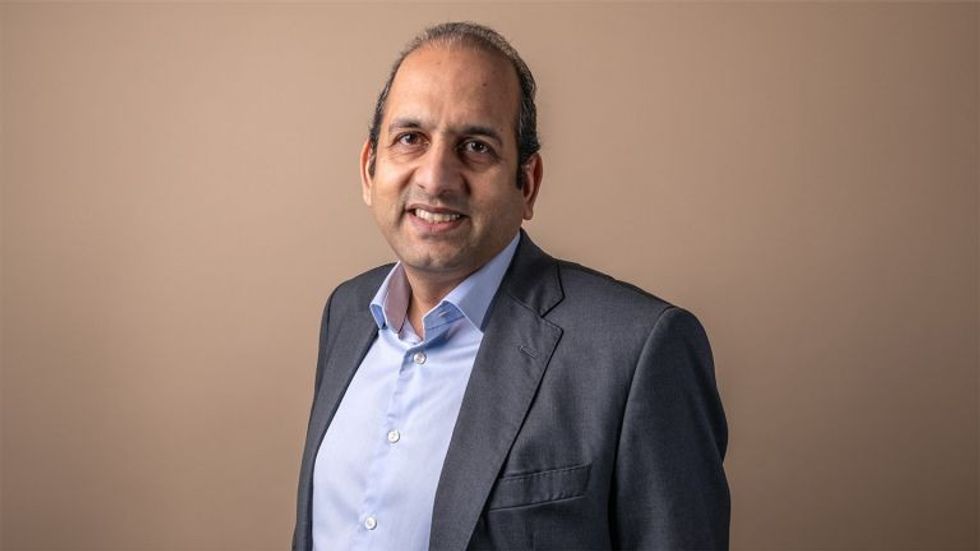
Normally, new MPs would not merit selection on to the GG2 Power List, but exceptionally, three, all Labour, have been marked for future stardom – Kanishka Narayan (91), member for the Vale of Glamorgan; Dr Zubir Ahmed (94), member for Glasgow south-west; and Jeevun Sandher (97), member for Loughborough.
Narayan is somewhat embarrassed that “like Boris”, he also went to “Eton and Balliol”, once seen as a first step to No 10. It is also worth pointing out that Dr Swati Dhingra (23), an external member of the Bank of England’s Monetary Policy Committee, recently had her three-year term extended by another three years by the chancellor, Rachel Reeves. Dhingra’s influence lies in shaping the Bank’s policy on interest rates.
In academia, Professor Joya Chatterji of Cambridge University (69), won the Wolfson, the “most prestigious history writing prize” in the UK for her book, Shadows at Noon: The South Asian Twentieth Century. She is passing on her “passion for history” to her PhD students from all over the world.
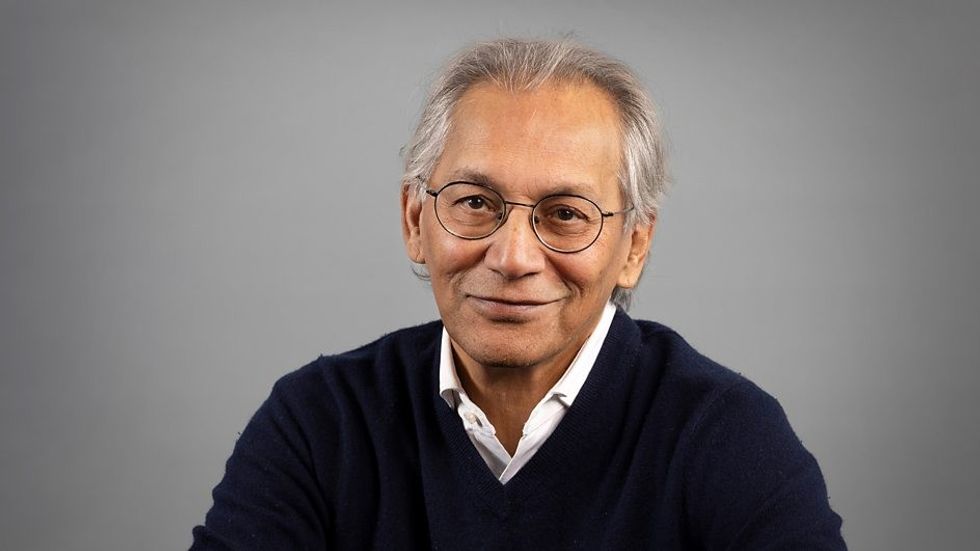
The Hindujas, who have dominated Eastern Eye’s Asian Rich List for well over a decade, are also on the GG2 Power List but at number 14, one below Samir Shah, the chairman of the BBC. The Hindujas have invested heavily in the healthcare sector, because they say they are motivated by the family motto, “work to give”.
There is growing concern that the chancellor’s policy on non-doms is stripping the UK of some of most influential Asian investors. People are being lured away by a friendlier low tax regime in Dubai. Lord Jitesh Gadhia (9), a member of the Court of the Bank of England, its governing body, said: “I think we now have an exodus of people going to the Gulf. There’s almost a critical mass. The government has got be quite bold in not only stopping the haemorrhaging, but also in re-attracting wealth creators and entrepreneurs.”
Some names stand out in the arts. Indhu Rubasingham (21) will soon be in sole charge as the artistic director of the National Theatre in succession to Rufus Norris. The artist Chila Burman (67) lit up London’s West End as well as the Imperial War Museum North in Manchester with her neon installations.
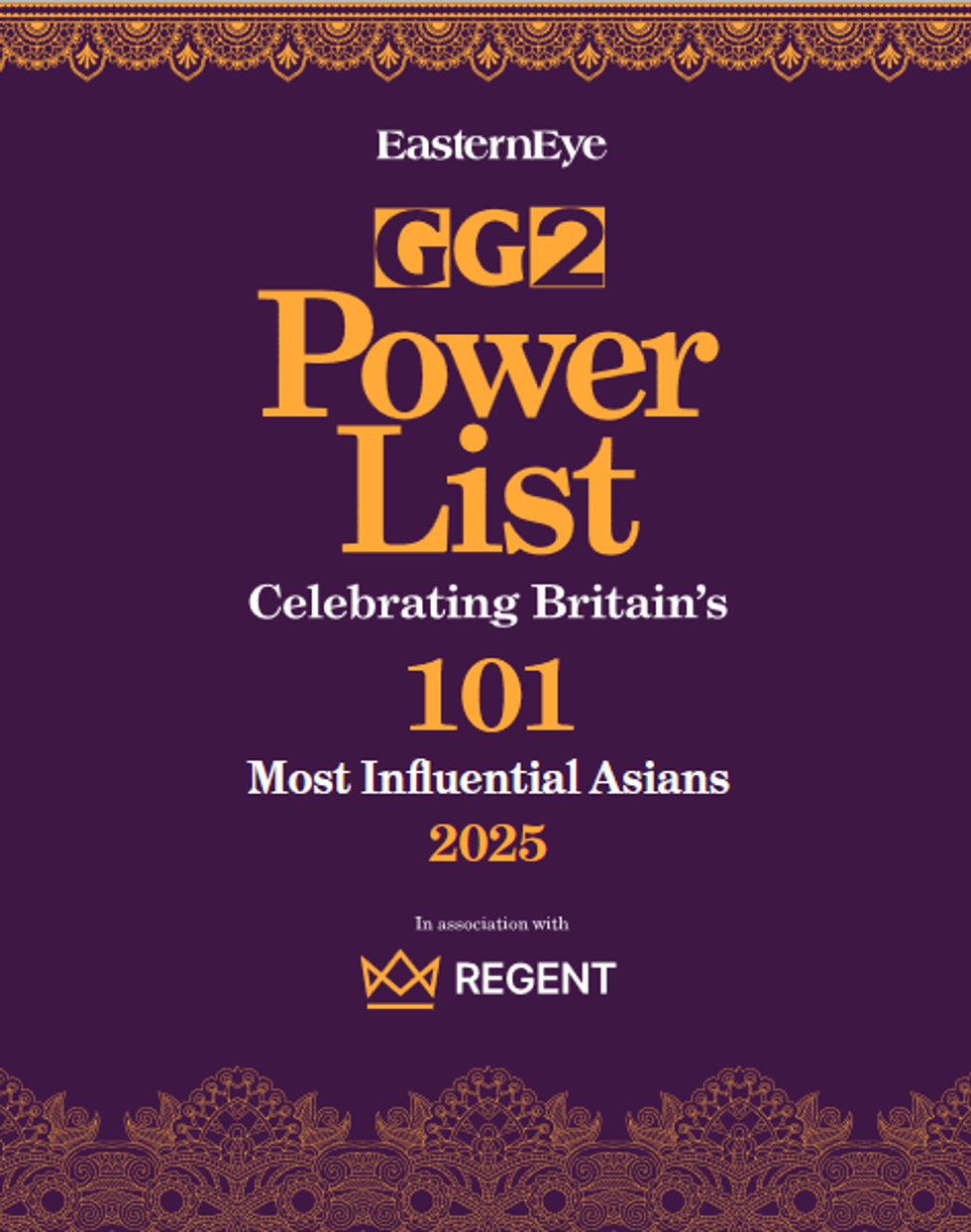
The BBC has turned City of Sinners into Virdee, a six-part TV crime drama. The novel was written and adapted by Bradford-based author A A Dhand (86).
Coverage of the GG2 Leadership and Diversity Awards will be published in Eastern Eye’s edition of March 14.
Rank 202 Name Title
1 Sadiq Khan Mayor of London
2 Shabana Mahmood Secretary of state for justice and Lord Chancellor
3 Sir Rabinder Singh Court of Appeal judge; president, Investigatory Powers Tribunal
4 Nin Pandit Principal private secretary to the prime minister
5 Rishi Sunak former prime minister; MP
6 Vidhya Alakeson deputy chief of staff
7 Charli XCX Musician
8 CS Venkatakrishnan CEO Barclays
9 Lord Jitesh Gadhia Chair, British Asian Trust
10 Leena Nair Global chief executive of Chanel
Copies of the GG2 Power List are available for sale; contact Saurin Shah by sending an email to saurin.shah@amg.biz.
